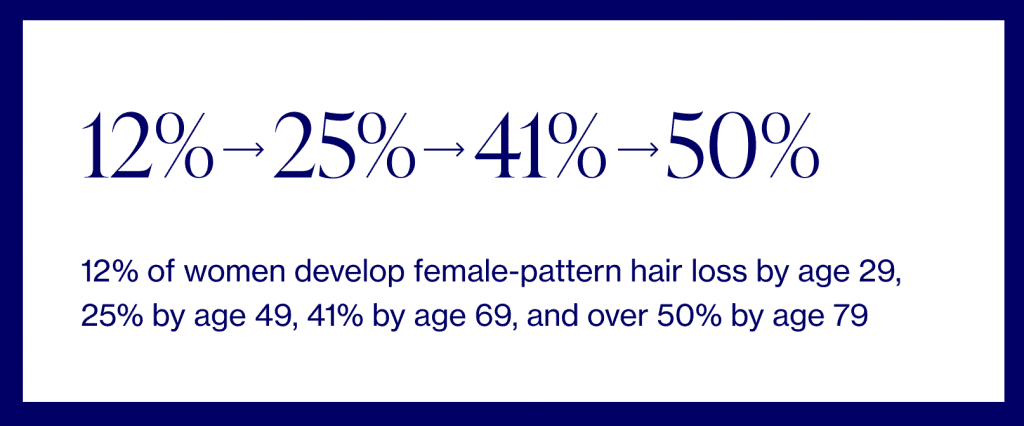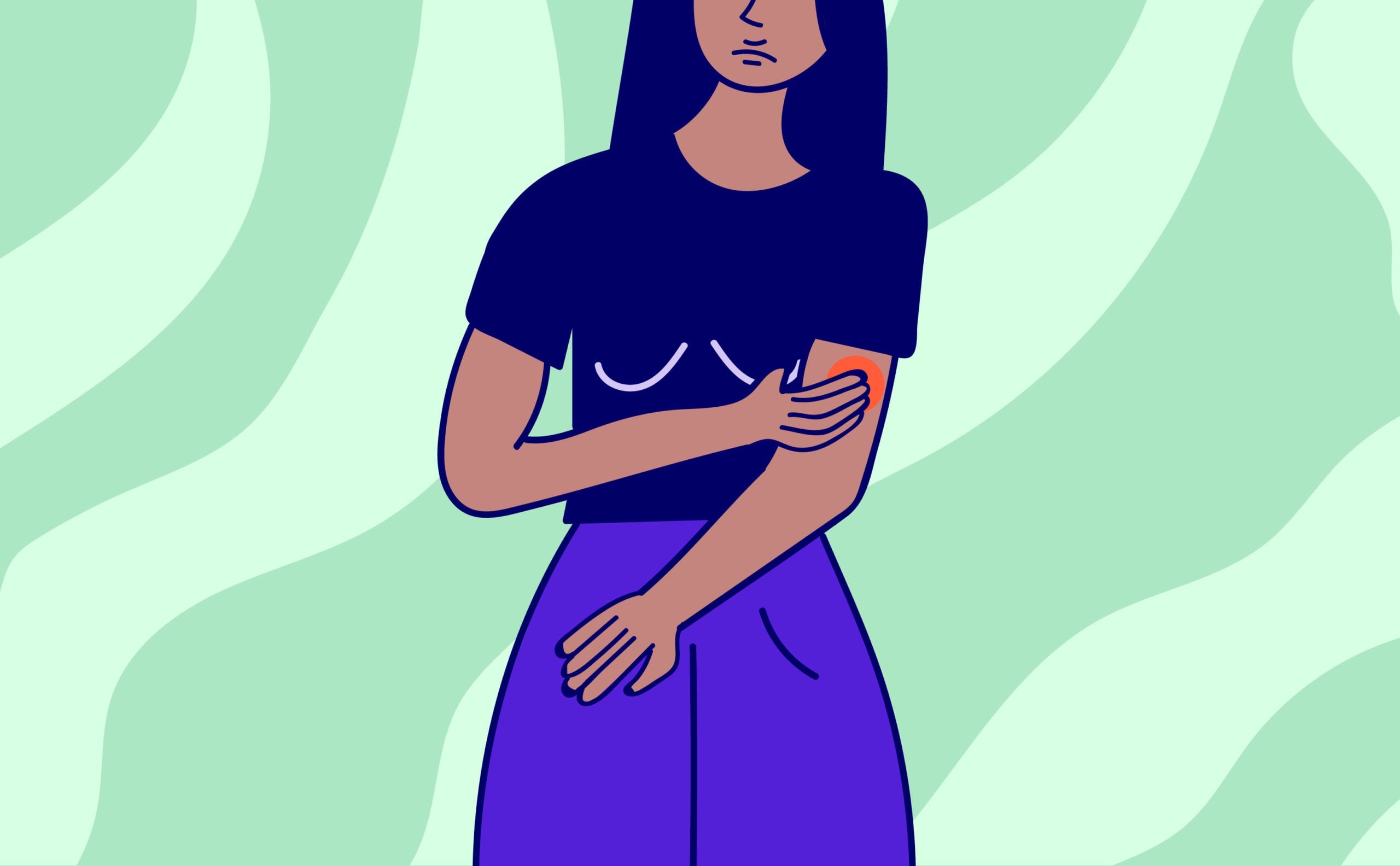Almost every woman eventually develops some form of female-pattern hair loss (FPHL), and while the causes vary, many are a function of aging.

- Hormone fluctuations
Those of us who have been pregnant before might recall hair loss or thinning after giving birth. This is a result of fluctuating hormone levels, specifically decreases in estrogen and progesterone. The same thing happens in menopause — except, during this stage of your life, decreased estrogen is compounded by relatively higher testosterone, which can also contribute to FPHL. Menopausal women may also experience hirsutism, a condition that results in the growth of dark, coarse hair where we *don’t* want it (think face, chest, and back). - Genetics
Women with a history of hair loss on either side of the family are at increased risk. - Stress
Whether emotional or physical (i.e. from an illness), stress may lead to hair loss as much as 4-9 months following the stressful event or trigger. - Medications
Such as blood thinners or antidepressants - Medical conditions
Including hypothyroidism, gluten intolerance, iron deficiency, and polycystic ovary syndrome (PCOS)

Compared to men’s baldness, FPHL is markedly understudied and rarely talked about (hence the taboo, which we’re on a mission to smash). Case in point: we know that, for men, balding usually begins above the temples, with the receding hairline eventually forming an “m” shape. Male hormones called androgens are the main cause of balding for men as well as women; however, other non-androgenic factors that contribute to FPHL have yet to be identified or studied. Long overdue, don’t ya think?
Although it’s difficult for doctors to pinpoint one singular cause, it’s still worth seeing a dermatologist who specializes in hair loss, especially if you experience a sudden onset.
Dr. Anna Barbieri, MD
Pro tip #1
Shout-out to celebrities who are helping smash the taboo around hair loss, an all-too-common condition. “A lot of people have been asking about why I’ve been wearing turbans,” said Jada Pinkett Smith. “Well, I haven’t talked about it. It’s not easy to talk about, but I am going to talk about it...I’ve been having issues with hair loss...And I’ll tell you it was terrifying when it first started.”




